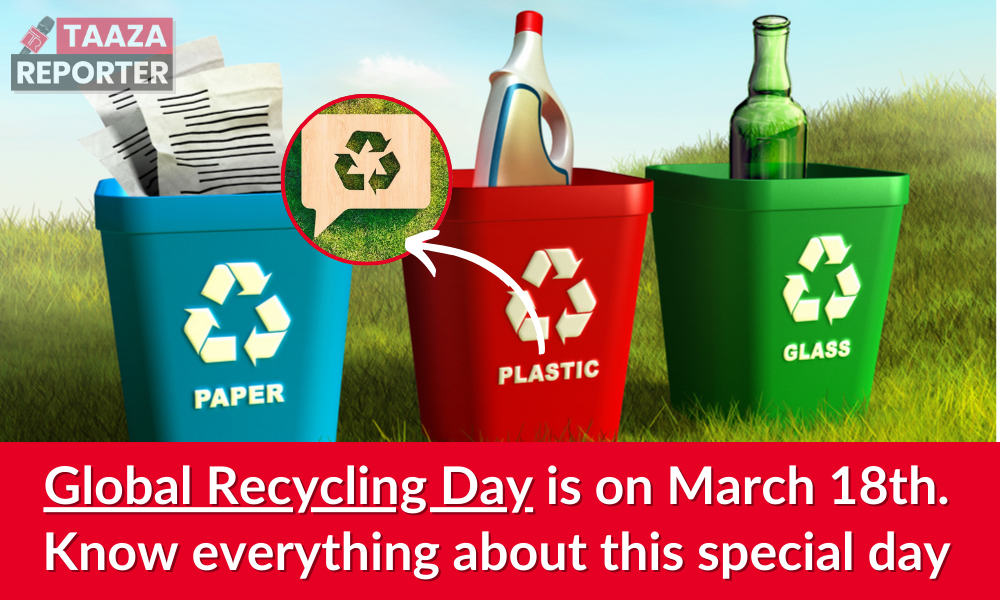When is Global Recycling Day?
Global Recycling Day happens every year on March 18th. It’s a day to remember why recycling is important for our planet. Let’s look at how it started and why it’s essential.
When and How Global Recycling Day Started:
Global Recycling Day began in 2018. It was created by the Global Recycling Foundation. They wanted to raise awareness about recycling and how it helps our planet. They also wanted to encourage everyone to recycle more.
Importance of Recycling:
Recycling helps us use less of Earth’s resources. It also helps us make less trash. When we recycle, we save energy and reduce pollution. This is good for the environment.
Environmental Benefits:
Recycling helps protect the environment in many ways. It saves trees, reduces pollution, and saves energy. When we recycle, we keep our air and water cleaner. This helps plants, animals, and people stay healthy.
Economic Benefits:
Recycling creates jobs and saves money. When we recycle, we make new things from old things. This helps businesses and communities save money. It also creates jobs for people who collect, sort, and process recyclables.
Social Benefits:
Recycling brings people together. It helps communities become cleaner and healthier. When we recycle, we show that we care about our planet and each other. This makes our communities stronger.
Global Recycling Initiatives:
Around the world, people are working together to recycle more. They’re starting programs to collect recyclables and teaching others about recycling. Many groups are also working to clean up trash from oceans and rivers.
Individual Action Steps / What can we do on Global Recycling Day:
As individuals, we can play a crucial role in supporting recycling efforts and reducing our environmental impact. Some simple yet effective actions we can take include:
- Reduce, Reuse, Recycle: Practice the three Rs of waste management by minimizing waste generation, reusing materials whenever possible, and recycling items that cannot be reused.
- Proper Waste Disposal: Dispose of waste responsibly by segregating recyclable materials from non-recyclable waste and following local recycling guidelines.
- Educate Others: Share information about the importance of recycling with friends, family, and colleagues to raise awareness and inspire others to adopt sustainable practices.
- Support Sustainable Products: Choose products made from recycled materials and support companies that prioritize sustainability in their business practices.
Government Policies:
Governments make rules to help people recycle. They set up programs to collect recyclables and make sure they’re processed correctly. Some governments also give rewards to people or businesses that recycle.
Countries Producing More Waste:
While waste generation varies by country, some of the world’s largest producers of municipal solid waste include the United States, China, India, and Brazil. Rapid urbanization, population growth, and industrialization are driving increased waste generation in these countries, highlighting the need for robust waste management strategies and recycling infrastructure.
Cleanest Countries:
Several countries have made significant strides in waste management and environmental sustainability, earning recognition for their efforts to reduce waste and promote recycling. Countries such as Sweden, Switzerland, and Germany are often cited as leaders in waste management, with high recycling rates and advanced recycling technologies. These nations prioritize waste reduction, resource recovery, and circular economy principles to minimize environmental impact and foster sustainable development.
Conclusion:
Global Recycling Day is a time to remember why recycling is important. By recycling, we help protect the environment, save money, and build stronger communities.
Let’s all do our part to recycle more and make the world a better place.









